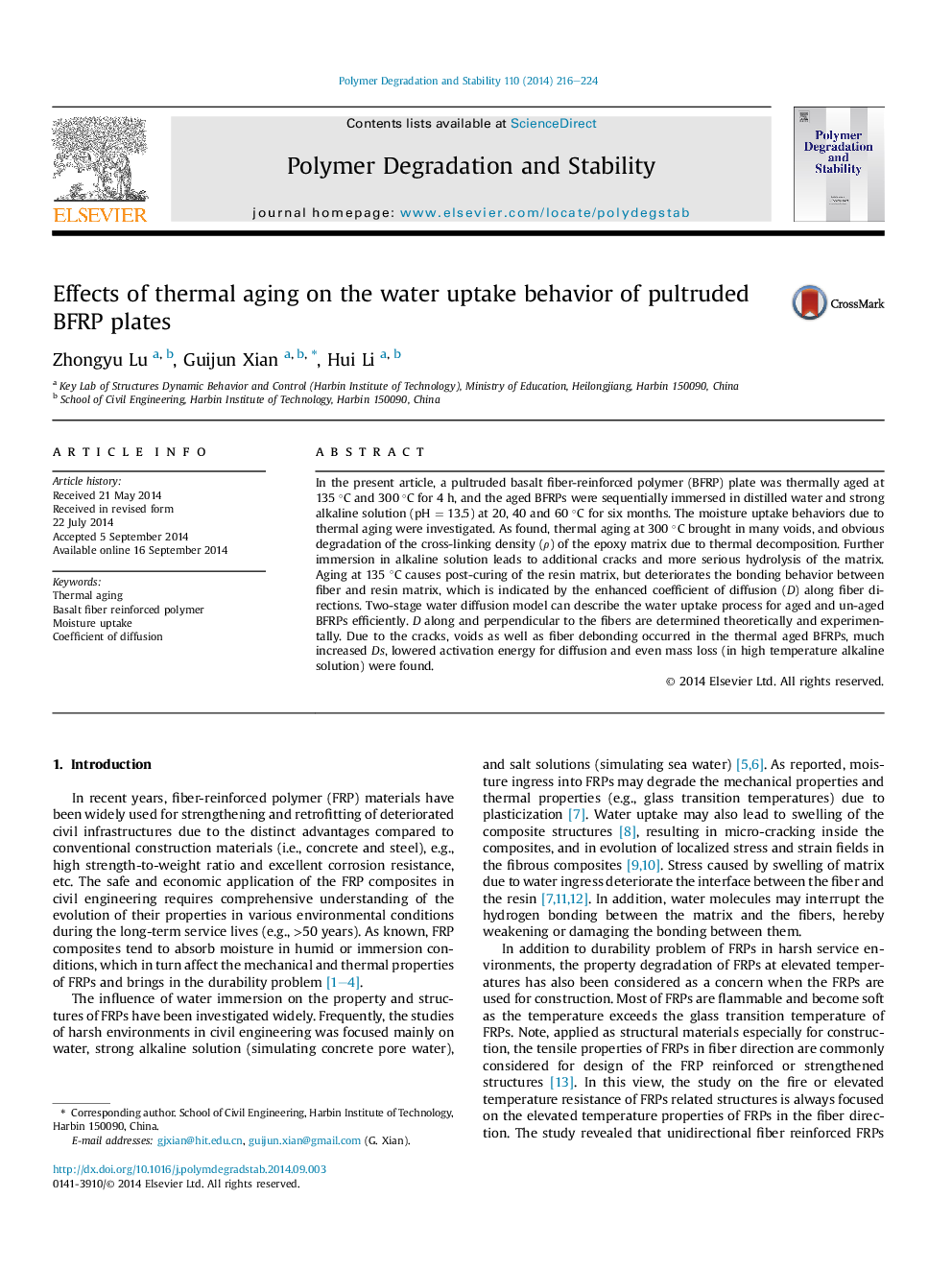| Article ID | Journal | Published Year | Pages | File Type |
|---|---|---|---|---|
| 5201654 | Polymer Degradation and Stability | 2014 | 9 Pages |
In the present article, a pultruded basalt fiber-reinforced polymer (BFRP) plate was thermally aged at 135 °C and 300 °C for 4 h, and the aged BFRPs were sequentially immersed in distilled water and strong alkaline solution (pH = 13.5) at 20, 40 and 60 °C for six months. The moisture uptake behaviors due to thermal aging were investigated. As found, thermal aging at 300 °C brought in many voids, and obvious degradation of the cross-linking density (Ï) of the epoxy matrix due to thermal decomposition. Further immersion in alkaline solution leads to additional cracks and more serious hydrolysis of the matrix. Aging at 135 °C causes post-curing of the resin matrix, but deteriorates the bonding behavior between fiber and resin matrix, which is indicated by the enhanced coefficient of diffusion (D) along fiber directions. Two-stage water diffusion model can describe the water uptake process for aged and un-aged BFRPs efficiently. D along and perpendicular to the fibers are determined theoretically and experimentally. Due to the cracks, voids as well as fiber debonding occurred in the thermal aged BFRPs, much increased Ds, lowered activation energy for diffusion and even mass loss (in high temperature alkaline solution) were found.
